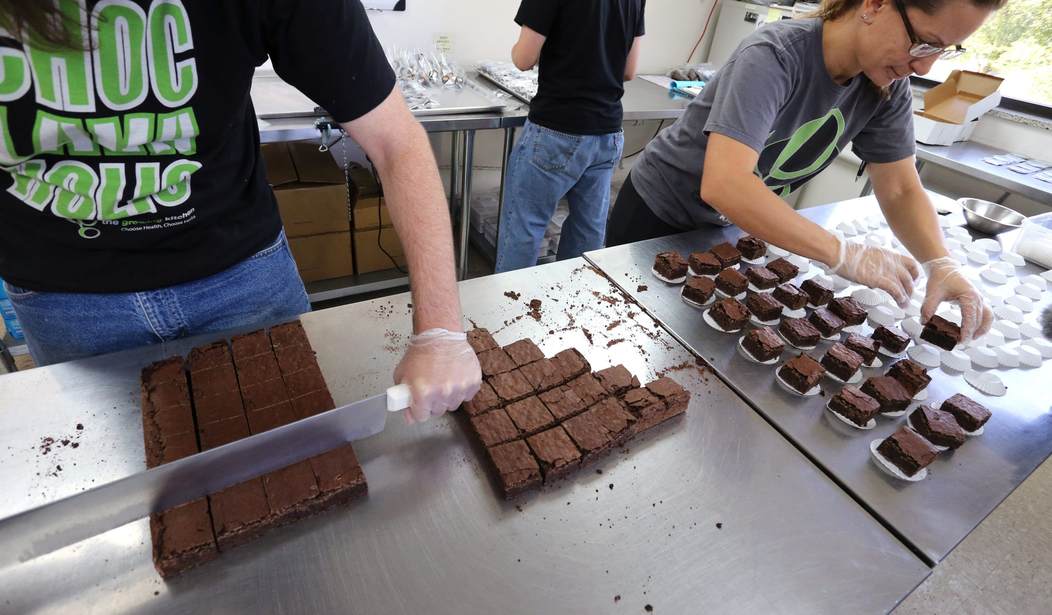Will the Illinois and Delaware legislatures become the first in the nation to end marijuana prohibition in their states? Not if police and pediatricians have anything to say about it.
Sure, there are eight states where people can smoke weed just for the fun of it without worrying about getting busted. But those were all cases of voters telling their politicians what they wanted.
Illinois and/or Delaware could become the first states in the nation where politicians take the lead on legalizing the recreational use of marijuana.
Illinois state Sen. Heather Steans (D) and Rep. Kelly Cassidy (D) plan to hold a town hall-style public hearing on the idea this Wednesday.
“It’s time that Illinois had a new drug policy,” Cassidy said. “Legalizing recreational marijuana will bring in hundreds of millions of dollars to the state. We’re discussing all sorts of proposals to end the budget impasse, and we thought this should be part of the conversation as well.”
Steans and Cassidy have introduced legislation that would make it legal for adults 21 and older to possess, grow, and purchase limited amounts of marijuana. The state would license and regulate businesses to cultivate, process, test, and sell marijuana to adults.
The legislation (SB 316/HB 2353) would also create and enforce strict health and safety regulations, such as testing and labeling requirements and restrictions on marketing.
The Marijuana Policy Project has estimated that legalizing recreational pot would mean a windfall of between $350 million and $700 million in new tax revenue in Illinois.
“We’re talking about all sorts of ways of raising revenue,” Cassidy told the AP. “We might as well be talking about this, too.”
That isn’t the way Ed Wojcicki, the director of the Illinois Association of Police Chiefs, sees it. He told the AP that legal marijuana would be “an enforcement nightmare.”
A Delaware Democrat wants her state to legalize recreational marijuana, too. The top cops in her state are just as worried —and resistant — as Wojcicki.
Like Steans and Cassidy in Illinois, Rep. Helene Keeley sees the grass in Colorado much greener than it is in Delaware.
Keeley said legalizing weed would “start an entirely new industry” in Delaware.
“As the only state in a seven-hour drive to have legalized marijuana, we would become a destination that would attract out-of-state sales, which would have a benefit to our Delaware businesses,” Keeley told the News-Journal.
Keleey and Sen. Margaret Rose Henry (D), who is sponsoring a legalized pot bill in the Senate, believe Delaware would see an infusion of $22 million in marijuana sales tax revenue the first year recreational marijuana is legalized.
But Henry doesn’t see this as a way to balanced Delaware’s budget. She sees it as an opportunity to reform the state’s criminal justice system.
“We see it as a social justice issue,” Henry said, “legalizing something that people always have done and are doing.”
But, in another echo of the debate heard in Illinois, Delaware Police Chiefs’ Council Executive Director Jeffrey Horvath thinks legalizing pot is a terrible idea.
“It generates revenue, but that’s about the only positive thing I can say about it,” Horvath told the News-Journal.
While pro-legalization advocates in Delaware and Illinois point to Colorado’s experience with legalized pot as proof that their state’s weed prohibition should end, Horvath said he’s heard an entirely different story from his law enforcement colleagues in the Rocky Mountain State.
“They tell me the black market is stronger there today than it has ever been,” he said. “And they’ve had a real issue with edibles, which tend to look like gummy bears, cookies and candy, getting in the hands of children. Teen marijuana use also has increased.”
Those against the idea of retail marijuana sales in Illinois and Delaware also pointed to a AAA study that showed traffic fatalities in the state of Washington had dramatically increased after recreational pot was legalized.
“The significant increase in fatal crashes involving marijuana is alarming,” said Peter Kissinger, president and CEO of the AAA Foundation for Traffic Safety. “Washington serves as an eye-opening case study for what other states may experience with road safety after legalizing the drug.”
Two pediatricians in Delaware warned in a News-Journal op-ed that while they would never “minimize the problems of social justice and the need for criminal reform…legal recreational marijuana is not the solution to these problems and would only add new ones.”
Despite assurances from legal-pot supporters that only adults would be allowed to smoke reefer, Drs. Siobhan L. Irwin and Robert S Walter said other states’ experience has shown the opposite is true.
“Adolescent usage has been associated with a decrease in many measures of success. These include decreased high school and college performance, increased dropout rates, plus increased use of non-prescribed stimulants,” Irwin and Walter wrote.
“Over the long term, marijuana is addictive, especially when begun in adolescence, with a 17 percent addiction rate which jumps to 25-50 percent if used daily in the teen years,” Irwin and Walter added.
The Trump administration is going to have something to say about this. No matter what Illinois, Delaware and the other 48 state legislatures do about marijuana, the use, possession and sale of marijuana are still a violation of federal law.
Attorney General Jeff Sessions has given no indication that he’s going to relax enforcement of federal laws.
“I don’t think America is going to be a better place when people of all ages, and particularly young people, are smoking pot,” Sessions said to reporters in March. “I believe it’s an unhealthy practice, and current levels of THC in marijuana are very high compared to what they were a few years ago, and we’re seeing real violence around that.”
Even in Colorado, where the state recorded its ninth month of $100 million in marijuana sales, lawmakers are aware of the 500-pound gorilla in the room that is Washington, D.C.
Gov. John Hickenlooper (D) said in March that he would probably veto legislation that would allow people to form pot clubs with local municipal approval.
It’s not that he thinks it’s a bad idea. What worried Hickenlooper was the Trump administration’s reaction.
“Given the uncertainty in Washington, this is not the time to be … trying to carve off new turf and expand markets and make dramatic statements about marijuana,” Hickenlooper told the Denver Post. “The federal government can yield a pretty heavy hand on this.”









Join the conversation as a VIP Member